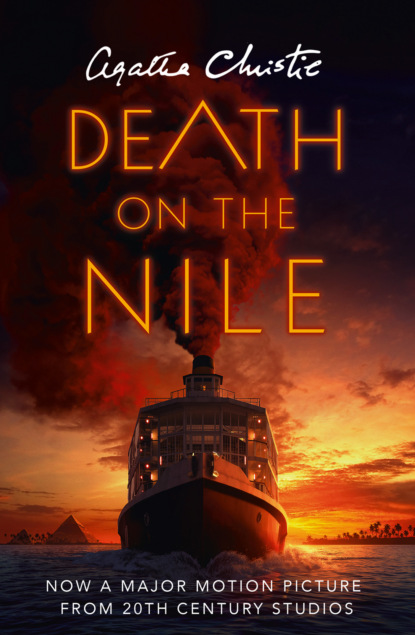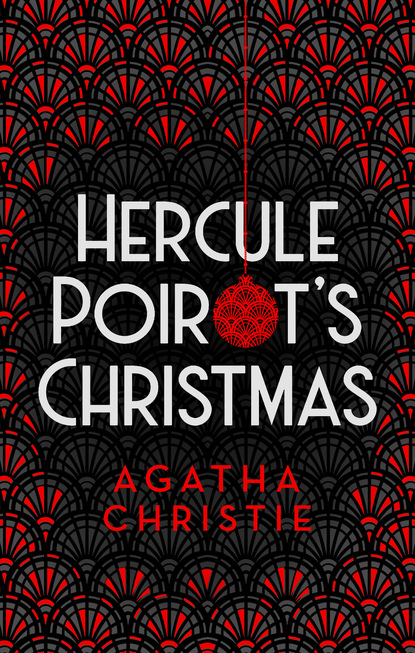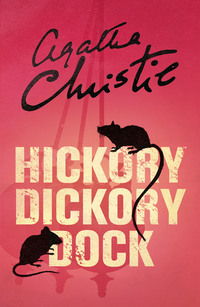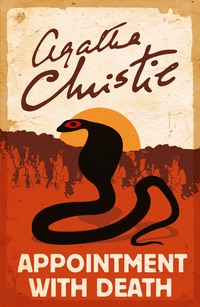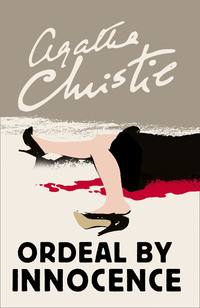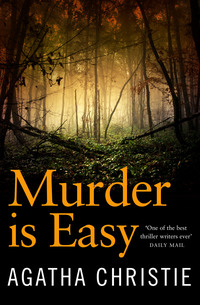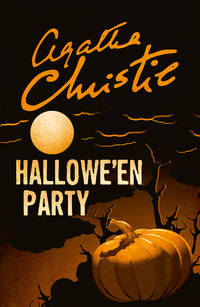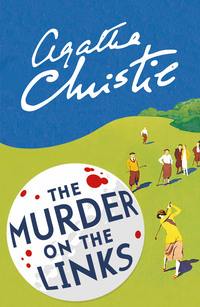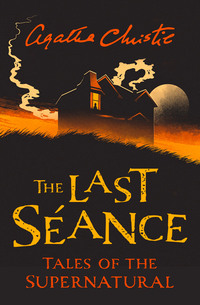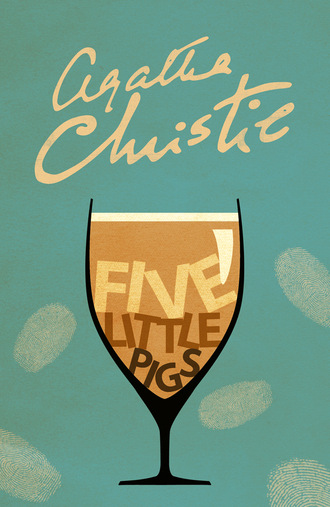
Полная версия
Five Little Pigs
Hercule Poirot said:
‘The coniine in the bottle must have been put there before she took it down to the garden.’
‘There was no coniine in the bottle at all. Only in the glass.’
He paused—his large handsome face suddenly altered—he turned his head sharply. ‘Hallo,’ he said. ‘Now then, Poirot, what are you driving at?’
Poirot said:
‘If Caroline Crale was innocent, how did that coniine get into the beer? The defence said at the time that Amyas Crale himself put it there. But you say to me that that was in the highest degree unlikely—and for my part I agree with you. He was not that kind of man. Then, if Caroline Crale did not do it, someone else did.’
Depleach said with almost a splutter:
‘Oh, damn it all, man, you can’t flog a dead horse. It’s all over and done with years ago. Of course she did it. You’d know that well enough if you’d seen her at the time. It was written all over her! I even fancy that the verdict was a relief to her. She wasn’t frightened. No nerves at all. Just wanted to get through the trial and have it over. A very brave woman, really…’
‘And yet,’ said Hercule Poirot, ‘when she died she left a letter to be given to her daughter in which she swore solemnly that she was innocent.’
‘I dare say she did,’ said Sir Montague Depleach. ‘You or I would have done the same in her place.’
‘Her daughter says she was not that kind of woman.’
‘The daughter says—pah! What does she know about it? My dear Poirot, the daughter was a mere infant at the time of the trial. What was she—four—five? They changed her name and sent her out of England somewhere to some relatives. What can she know or remember?’
‘Children know people very well sometimes.’
‘Maybe they do. But that doesn’t follow in this case. Naturally the girl wants to believe her mother didn’t do it. Let her believe it. It doesn’t do any harm.’
‘But unfortunately she demands proof.’
‘Proof that Caroline Crale didn’t kill her husband?’
‘Yes.’
‘Well,’ said Depleach. ‘She won’t get it.’
‘You think not?’
The famous K.C. looked thoughtfully at his companion.
‘I’ve always thought you were an honest man, Poirot. What are you doing? Trying to make money by playing on a girl’s natural affections?’
‘You do not know the girl. She is an unusual girl. A girl of great force of character.’
‘Yes, I should imagine the daughter of Amyas and Caroline Crale might be that. What does she want?’
‘She wants the truth.’
‘Hm—I’m afraid she’ll find the truth unpalatable. Honestly, Poirot, I don’t think there’s any doubt about it. She killed him.’
‘You will forgive me, my friend, but I must satisfy myself on that point.’
‘Well, I don’t know what more you can do. You can read up the newspaper accounts of the trial. Humphrey Rudolph appeared for the Crown. He’s dead—let me see, who was his junior? Young Fogg, I think. Yes, Fogg. You can have a chat with him. And then there are the people who were there at the time. Don’t suppose they’ll enjoy your butting in and raking the whole thing up, but I dare say you’ll get what you want out of them. You’re a plausible devil.’
‘Ah yes, the people concerned. That is very important. You remember, perhaps, who they were?’
Depleach considered.
‘Let me see—it’s a long time ago. There were only five people who were really in it, so to speak—I’m not counting the servants—a couple of faithful old things, scared-looking creatures—they didn’t know anything about anything. No one could suspect them.’
‘There are five people, you say. Tell me about them.’
‘Well, there was Philip Blake. He was Crale’s greatest friend—had known him all his life. He was staying in the house at the time. He’s alive. I see him now and again on the links. Lives at St George’s Hill. Stockbroker. Plays the markets and gets away with it. Successful man, running to fat a bit.’
‘Yes. And who next?’
‘Then there was Blake’s elder brother. Country squire—stay at home sort of chap.’
A jingle ran through Poirot’s head. He repressed it. He must not always be thinking of nursery rhymes. It seemed an obsession with him lately. And yet the jingle persisted.
‘This little pig went to market, this little pig stayed at home…’
He murmured:
‘He stayed at home—yes?’
‘He’s the fellow I was telling you about—messed about with drugs—and herbs—bit of a chemist. His hobby. What was his name now? Literary sort of name—I’ve got it. Meredith. Meredith Blake. Don’t know whether he’s alive or not.’
‘And who next?’
‘Next? Well, there’s the cause of all the trouble. The girl in the case. Elsa Greer.’
‘This little pig ate roast beef,’ murmured Poirot.
Depleach stared at him.
‘They’ve fed her meat all right,’ he said. ‘She’s been a go-getter. She’s had three husbands since then. In and out of the divorce court as easy as you please. And every time she makes a change, it’s for the better. Lady Dittisham—that’s who she is now. Open any Tatler and you’re sure to find her.’
‘And the other two?’
‘There was the governess woman. I don’t remember her name. Nice capable woman. Thompson—Jones—something like that. And there was the child. Caroline Crale’s half-sister. She must have been about fifteen. She’s made rather a name for herself. Digs up things and goes trekking to the back of beyond. Warren—that’s her name. Angela Warren. Rather an alarming young woman nowadays. I met her the other day.’
‘She is not, then, the little pig who cried Wee Wee Wee…?’
Sir Montague Depleach looked at him rather oddly. He said drily:
‘She’s had something to cry Wee-Wee about in her life! She’s disfigured, you know. Got a bad scar down one side of her face. She—Oh well, you’ll hear all about it, I dare say.’
Poirot stood up. He said:
‘I thank you. You have been very kind. If Mrs Crale did not kill her husband—’
Depleach interrupted him:
‘But she did, old boy, she did. Take my word for it.’
Poirot continued without taking any notice of the interruption.
‘Then it seems logical to suppose that one of these five people must have done so.’
‘One of them could have done it, I suppose,’ said Depleach, doubtfully. ‘But I don’t see why any of them should. No reason at all! In fact, I’m quite sure none of them did do it. Do get this bee out of your bonnet, old boy!’
But Hercule Poirot only smiled and shook his head.
Chapter 2
Counsel for the Prosecution
‘Guilty as Hell,’ said Mr Fogg succinctly.
Hercule Poirot looked meditatively at the thin clear-cut face of the barrister.
Quentin Fogg, K.C. was a very different type from Montague Depleach. Depleach had force, magnetism, an over-bearing and slightly bullying personality. He got his effects by a rapid and dramatic change of manner. Handsome, urbane, charming one minute—then an almost magical transformation, lips back, snarling smile—out for your blood.
Quentin Fogg was thin, pale, singularly lacking in what is called personality. His questions were quiet and unemotional—but steadily persistent. If Depleach was like a rapier, Fogg was like an auger. He bored steadily. He had never reached spectacular fame, but he was known as a first-class man on law. He usually won his cases.
Hercule Poirot eyed him meditatively.
‘So that,’ he said, ‘was how it struck you?’
Fogg nodded. He said:
‘You should have seen her in the box. Old Humpie Rudolph (he was leading, you know) simply made mincement of her. Mincemeat!’
He paused and then said unexpectedly:
‘On the whole, you know, it was rather too much of a good thing.’
‘I am not sure,’ said Hercule Poirot, ‘that I quite understand you?’
Fogg drew his delicately marked brows together. His sensitive hand stroked his bare upper lip. He said:
‘How shall I put it? It’s a very English point of view. “Shooting the sitting bird” describes it best. Is that intelligible to you?’
‘It is, as you say, a very English point of view, but I think I understand you. In the Central Criminal Court, as on the playing fields of Eton, and in the hunting country, the Englishman likes the victim to have a sporting chance.’
‘That’s it, exactly. Well, in this case, the accused didn’t have a chance. Humpie Rudolph did as he liked with her. It started with her examination by Depleach. She stood up there, you know—as docile as a little girl at a party, answering Depleach’s questions with the answers she’d learnt off by heart. Quite docile, word perfect—and absolutely unconvincing! She’d been told what to say and she said it. It wasn’t Depleach’s fault. That old mountebank played his part perfectly—but in any scene that needs two actors, one alone can’t carry it. She didn’t play up to him. It made the worst possible effect on the jury. And then old Humpie got up. I expect you’ve seen him? He’s a great loss. Hitching his gown up, swaying back on his feet—and then—straight off the mark!
‘As I tell you, he made mincemeat of her! Led up to this and that—and she fell into the pitfall every time. He got her to admit the absurdities of her own statements, he got her to contradict herself, she floundered in deeper and deeper. And then he wound up with his usual stuff. Very compelling—very convinced: “I suggest to you, Mrs Crale, that this story of yours about stealing coniine in order to commit suicide is a tissue of falsehood. I suggest that you took it in order to administer it to your husband who was about to leave you for another woman, and that you did deliberately administer it to him.” And she looked at him—such a pretty creature—graceful, delicate—and she said: “Oh, no—no, I didn’t.” It was the flattest thing you ever heard—the most unconvincing. I saw old Depleach squirm in his seat. He knew it was all up them.’
Fogg paused a minute—then he went on:
‘And yet—I don’t know. In some ways it was the cleverest thing she could have done! It appealed to chivalry—to that queer chivalry closely allied to blood sports which makes most foreigners think us such almighty humbugs! The jury felt—the whole court felt—that she hadn’t got a chance. She couldn’t even fight for herself. She certainly couldn’t put up any kind of a show against a great big clever brute like old Humpie. That weak, unconvincing: “Oh no—no, I didn’t,” it was pathetic—simply pathetic. She was done for!
‘Yes, in a way, it was the best thing she could have done. The jury were only out just over half an hour. They brought her in: Guilty with a recommendation to mercy.
‘Actually, you know, she made a good contrast to the other woman in the case. The girl. The jury were unsympathetic to her from the start. She never turned a hair. Very good looking, hard-boiled, modern. To the women in the court she stood for a type—type of the home-breaker. Homes weren’t safe when girls like that were wandering abroad. Girls damn full of sex and contemptuous of the rights of wives and mothers. She didn’t spare herself, I will say. She was honest. Admirably honest. She’d fallen in love with Amyas Crale and he with her, and she’d no scruples at all about taking him away from his wife and child.
‘I admired her in a way. She had guts. Depleach put in some nasty stuff in cross-examination and she stood up well to it. But the court was unsympathetic. And the judge didn’t like her. Old Avis, it was. Been a bit of a rip himself when young—but he’s very hot on morality when he’s presiding in his robes. His summing up against Caroline Crale was mildness itself. He couldn’t deny the facts but he threw out pretty strong hints as to provocation and all that.’
Hercule Poirot asked:
‘He did not support the suicide theory of the defence?’
Fogg shook his head.
‘That never really had a leg to stand upon. Mind you, I don’t say Depleach didn’t do his best with it. He was magnificent. He painted a most moving picture of a great-hearted, pleasure-loving, temperamental man, suddenly overtaken by a passion for a lovely young girl, conscience stricken, yet unable to resist. Then his recoil, his disgust with himself, his remorse for the way he was treating his wife and child and his sudden decision to end it all! The honourable way out. I can tell you, it was a most moving performance; Depleach’s voice brought tears to your eyes. You saw the poor wretch torn by his passions and his essential decency. The effect was terrific. Only—when it was all over—and the spell was broken, you couldn’t quite square that mythical figure with Amyas Crale. Everybody knew too much about Crale. He wasn’t at all that kind of man. And Depleach hadn’t been able to get hold of any evidence to show that he was. I should say Crale came as near as possible to being a man without even a rudimentary conscience. He was a ruthless, selfish, good-tempered happy egoist. Any ethics he had would have applied to painting. He wouldn’t, I’m convinced, have painted a sloppy, bad picture—no matter what the inducement. But for the rest, he was a full-blooded man and he loved life—he had a zest for it. Suicide? Not he!’
‘Not, perhaps, a very good defence to have chosen?’
Fogg shrugged his thin shoulders. He said:
‘What else was there? Couldn’t sit back and plead that there was no case for the jury—that the prosecution had got to prove their case against the accused. There was a great deal too much proof. She’d handled the poison—admitted pinching it, in fact. There was means, motive, opportunity—everything.’
‘One might have attempted to show that these things were artificially arranged?’
Fog said bluntly:
‘She admitted most of them. And, in any case, it’s too far-fetched. You’re implying, I presume, that somebody else murdered him and fixed it up to look as though she had done it.’
‘You think that quite untenable?’
Fogg said slowly:
‘I’m afraid I do. You’re suggesting the mysterious X. Where do we look for him?’
Poirot said:
‘Obviously in a close circle. There were five people, were there not, who could have been concerned?’
‘Five? Let me see. There was the old duffer who messed about with his herb brewing. A dangerous hobby—but an amiable creature. Vague sort of person. Don’t see him as X. There was the girl—she might have polished off Caroline, but certainly not Amyas. Then there was the stockbroker—Crale’s best friend. That’s popular in detective stories, but I don’t believe in it in real life. There’s no one else—oh yes, the kid sister, but one doesn’t seriously consider her. That’s four.’
Hercule Poirot said:
‘You forget the governess.’
‘Yes, that’s true. Wretched people, governesses, one never does remember them. I do recall her dimly though. Middle-aged, plain, competent. I suppose a psychologist would say that she had a guilty passion for Crale and therefore killed him. The repressed spinster! It’s no good—I just don’t believe it. As far as my dim remembrance goes she wasn’t the neurotic type.’
‘It is a long time ago.’
‘Fifteen or sixteen years, I suppose. Yes, quite that. You can’t expect my memories of the case to be very acute.’
Hercule Poirot said:
‘But on the contrary, you remember it amazingly well. That astounds me. You can see it, can you not? When you talk the picture is there before your eyes.’
Fogg said slowly:
‘Yes, you’re right—I do see it—quite plainly.’
Poirot said:
‘It would interest me, my friend, very much, if you would tell me why?’
‘Why?’ Fogg considered the question. His thin intellectual face was alert—interested. ‘Yes, now why?’
Poirot asked:
‘What do you see so plainly? The witnesses? The counsel? The judge? The accused standing in the dock?’
Fogg said quietly:
‘That’s the reason, of course! You’ve put your finger on it. I shall always see her…Funny thing, romance. She had the quality of it. I don’t know if she was really beautiful…She wasn’t very young—tired looking—circles under her eyes. But it all centered round her. The interest—the drama. And yet, half the time, she wasn’t there. She’d gone away somewhere, quite far away—just left her body there, quiescent, attentive, with the little polite smile on her lips. She was all half tones, you know, lights and shades. And yet, with it all, she was more alive than the other—that girl with the perfect body, and the beautiful face, and the crude young strength. I admired Elsa Greer because she had guts, because she could fight, because she stood up to her tormentors and never quailed! But I admired Caroline Crale because she didn’t fight, because she retreated into her world of half lights and shadows. She was never defeated because she never gave battle.’
He paused:
‘I’m only sure of one thing. She loved the man she killed. Loved him so much that half of her died with him…’
Mr Fogg, K.C., paused and polished his glasses.
‘Dear me,’ he said. ‘I seem to be saying some very strange things! I was quite a young man at the time, you know. Just an ambitious youngster. These things make an impression. But all the same I’m sure that Caroline Crale was a very remarkable woman. I shall never forget her. No—I shall never forget her…’
Chapter 3
The Young Solicitor
George Mayhew was cautious and non-committal.
He remembered the case, of course, but not at all clearly. His father had been in charge—he himself had been only nineteen at the time.
Yes, the case had made a great stir. Because of Crale being such a well-known man. His pictures were very fine—very fine indeed. Two of them were in the Tate. Not that that meant anything.
M. Poirot would excuse him, but he didn’t see quite what M. Poirot’s interest was in the matter. Oh, the daughter! Really? Indeed? Canada? He had always heard it was New Zealand.
George Mayhew became less rigid. He unbent.
A shocking thing in a girl’s life. He had the deepest sympathy for her. Really it would have been better if she had never learned the truth. Still, it was no use saying that now.
She wanted to know? Yes, but what was there to know? There were the reports of the trial, of course. He himself didn’t really know anything.
No, he was afraid there wasn’t much doubt as to Mrs Crale’s being guilty. There was a certain amount of excuse for her. These artists—difficult people to live with. With Crale, he understood, it had always been some woman or other.
And she herself had probably been the possessive type of woman. Unable to accept facts. Nowadays she’d simply have divorced him and got over it. He added cautiously:
‘Let me see—er—Lady Dittisham, I believe, was the girl in the case.’
Poirot said that he believed that that was so.
‘The newspapers bring it up from time to time,’ said Mayhew. ‘She’s been in the divorce court a good deal. She’s a very rich woman, as I expect you know. She was married to that explorer fellow before Dittisham. She’s always more or less in the public eye. The kind of woman who likes notoriety, I should imagine.’
‘Or possibly a hero worshipper,’ suggested Poirot.
The idea was upsetting to George Mayhew. He accepted it dubiously.
‘Well, possibly—yes, I suppose that might be so.’
He seemed to be turning the idea over in his mind.
Poirot said:
‘Had your firm acted for Mrs Crale for a long period of years?’
George Mayhew shook his head.
‘On the contrary. Jonathan and Jonathan were the Crale solicitors. Under the circumstances, however, Mr Jonathan felt that he could not very well act for Mrs Crale, and he arranged with us—with my father—to take over her case. You would do well, I think, M. Poirot, to arrange a meeting with old Mr Jonathan. He has retired from active work—he is over seventy—but he knew the Crale family intimately, and he could tell you far more than I can. Indeed, I myself can tell you nothing at all. I was a boy at the time. I don’t think I was even in court.’
Poirot rose and George Mayhew, rising too, added:
‘You might like to have a word with Edmunds, our managing clerk. He was with the firm then and took a great interest in the case.’
Edmunds was a man of slow speech. His eyes gleamed with legal caution. He took his time in sizing up Poirot before he let himself be betrayed into speech. He said:
‘Ay, I mind the Crale case.’
He added severely: ‘It was a disgraceful business.’
His shrewd eyes rested appraisingly on Hercule Poirot.
He said:
‘It’s a long time since to be raking things up again.’
‘A court verdict is not always an ending.’
Edmunds’s square head nodded slowly.
‘I’d not say that you weren’t in the right of it there.’
Hercule Poirot went on: ‘Mrs Crale left a daughter.’
‘Ay, I mind there was a child. Sent abroad to relatives, was she not?’
Poirot went on:
‘That daughter believes firmly in her mother’s innocence.’
The huge bushy eyebrows of Mr Edmunds rose.
‘That’s the way of it, is it?’
Poirot asked:
‘Is there anything you can tell me to support that belief?’
Edmunds reflected. Then, slowly, he shook his head.
‘I could not conscientiously say there was. I admired Mrs Crale. Whatever else she was, she was a lady! Not like the other. A hussy—no more, no less. Bold as brass! Jumped-up trash—that’s what she was—and showed it! Mrs Crale was quality.’
‘But none the less a murderess?’
Edmunds frowned. He said, with more spontaneity than he had yet shown:
‘That’s what I used to ask myself, day after day. Sitting there in the dock so calm and gentle. “I’ll not believe it,” I used to say to myself. But, if you take my meaning, Mr Poirot, there wasn’t anything else to believe. That hemlock didn’t get into Mr Crale’s beer by accident. It was put there. And if Mrs Crale didn’t put it there, who did?’
‘That is the question,’ said Poirot. ‘Who did?’
Again those shrewd old eyes searched his face.
‘So that’s your idea?’ said Mr Edmunds.
‘What do you think yourself?’
There was a pause before the officer answered. Then he said:
‘There was nothing that pointed that way—nothing at all.’
Poirot said:
‘You were in court during the hearing of the case?’
‘Every day.’
‘You heard the witnesses give evidence?’
‘I did.’
‘Did anything strike you about them—any abnormality, any insincerity?’
Edmunds said bluntly:
‘Was one of them lying, do you mean? Had one of them a reason to wish Mr Crale dead? If you’ll excuse me, Mr Poirot, that’s a very melodramatic idea.’
‘At least consider it,’ Poirot urged.
He watched the shrewd face, the screwed-up, thoughtful eyes. Slowly, regretfully, Edmunds shook his head.
‘That Miss Greer,’ he said, ‘she was bitter enough, and vindictive! I’d say she overstepped the mark in a good deal she said, but it was Mr Crale alive she wanted. He was no use to her dead. She wanted Mrs Crale hanged all right—but that was because death had snatched her man away from her. Like a baulked tigress she was! But, as I say, it was Mr Crale alive she’d wanted. Mr Philip Blake, he was against Mrs Crale too. Prejudiced. Got his knife into her whenever he could. But I’d say he was honest according to his lights. He’d been Mr Crale’s great friend. His brother, Mr Meredith Blake—a bad witness he was—vague, hesitating—never seemed sure of his answers. I’ve seen many witnesses like that. Look as though they’re lying when all the time they’re telling the truth. Didn’t want to say anything more than he could help, Mr Meredith Blake didn’t. Counsel got all the more out of him on that account. One of these quiet gentlemen who get easily flustered. The governess now, she stood up well to them. Didn’t waste words and answered pat and to the point. You couldn’t have told, listening to her, which side she was on. Got all her wits about her, she had. The brisk kind.’ He paused. ‘Knew a lot more than she ever let on about the whole thing, I shouldn’t wonder.’





